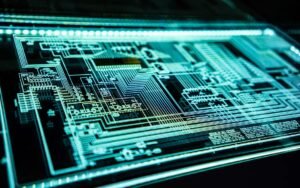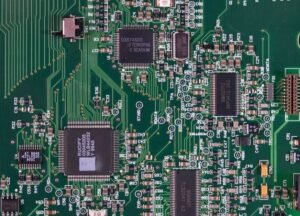Are AI Good or Bad?
There is an ongoing debate about whether artificial intelligence (AI) is ultimately beneficial or detrimental to society. AI has made significant advancements in various fields, but concerns about job displacement, privacy, and ethical implications have also been raised.
Key Takeaways:
- Artificial intelligence (AI) has both positive and negative implications for society.
- Advancements in AI have led to innovations in various industries and improved efficiency.
- There are concerns about job displacement, ethical considerations, and potential biases in AI algorithms.
- Regulations and ethical guidelines are necessary to mitigate the negative impacts of AI.
On one hand, AI has revolutionized industries such as healthcare, transportation, and finance, leading to increased efficiency and improved outcomes. AI-powered systems are capable of analyzing large amounts of data in real-time, enabling faster decision-making and more accurate predictions. *AI has the potential to save lives by assisting in early diagnosis and personalized treatment plans.*
However, critics argue that the widespread adoption of AI could result in significant job displacement. Automation and AI technologies are increasingly replacing human labor in various sectors, impacting employment opportunities and potentially widening socioeconomic inequalities. *The impact of AI on the job market needs careful consideration and proactive measures to re-skill and adapt the workforce.*
Another concern surrounding AI is ethics. As AI systems become more sophisticated, questions arise about their decision-making processes and potential biases. AI algorithms are trained on existing data, which can inadvertently perpetuate societal inequalities or reinforce biased perspectives. *Ensuring AI systems are designed with transparency and fairness in mind is crucial to prevent unintended consequences and discrimination.*
| AI Advantages | AI Disadvantages |
|---|---|
| Automation and increased efficiency in industries | Potential job displacement and economic inequality |
| Enhanced healthcare diagnostics and personalized treatments | Possible biases and discrimination in AI algorithms |
| Improved decision-making and predictive capabilities | Privacy concerns and data security risks |
Privacy is another area where AI raises concerns. As AI systems gather and analyze vast amounts of personal data, maintaining privacy becomes a critical challenge. There is a risk of data breaches or misuse of sensitive information if proper security measures are not in place. *Balancing the benefits of AI with protecting individual privacy rights is a delicate task that requires robust legislation and technology safeguards.*
Efforts to regulate AI and develop ethical guidelines are underway. Governments and organizations are working towards establishing responsible AI practices to address societal concerns. Regulatory frameworks can help ensure that AI is developed and deployed in a manner that considers both the benefits and potential risks. *Collaborative efforts between policymakers, researchers, and industry professionals are essential in shaping the future of AI responsibly.*
Conclusion:
AI is a powerful technology with the potential for significant societal impact. It can bring about transformative advancements, but it also carries risks and raises valid concerns. It is essential to strike a balance between embracing AI’s benefits while mitigating its potential drawbacks. By continuing to explore and address the ethical and policy challenges associated with AI, we can harness its potential for the betterment of society.

Common Misconceptions
Misconception 1: AI is solely good or bad
One common misconception is that artificial intelligence (AI) is inherently either good or bad. In reality, AI is a tool and its impact depends on how it is developed and utilized.
- AI can provide valuable insights and improve efficiency in various industries.
- AI can also be used for malicious purposes, such as cyberattacks or deepfake videos.
- The ethical use of AI is crucial to ensure beneficial outcomes for society.
Misconception 2: AI will replace humans completely
Another misconception is that AI will replace humans in every job and render human labor obsolete. While AI can automate certain tasks, it is unlikely to completely replace the need for human involvement in most fields.
- AI can augment human capabilities, making work more efficient and freeing up time for creative and complex tasks.
- Jobs requiring emotional intelligence, critical thinking, and complex problem-solving are less likely to be automated by AI.
- A balanced integration of AI and human skills can lead to more productive and fulfilling work environments.
Misconception 3: AI is unbiased and fair
Many people incorrectly assume that AI systems are unbiased and fair since they are based on algorithms. However, AI algorithms can inherit biases from the data they are trained on, leading to discrimination and unfair outcomes.
- Biases can be present in training data due to historical imbalances or human prejudices.
- AI systems require careful monitoring and bias mitigation techniques to ensure fairness and equity.
- Transparency and explainability in AI algorithms are crucial to identify and address any biases.
Misconception 4: AI is infallible
Some people believe that AI is flawless and makes perfect decisions in all circumstances. However, AI systems are not infallible and can make errors or produce unintended consequences.
- AI relies on data and algorithms, both of which can be imperfect or subject to limitations.
- Incorrect or incomplete data can lead to incorrect predictions or decisions by AI systems.
- Regular testing, monitoring, and human oversight are necessary to identify and correct any errors made by AI systems.
Misconception 5: AI is a distant futuristic concept
Many people think that AI is a concept of the distant future and will not affect their lives anytime soon. However, AI is already integrated into various aspects of our daily lives and continues to evolve rapidly.
- AI is present in voice assistants, search engines, recommendation algorithms, and social media platforms.
- AI is increasingly being used in healthcare, transportation, finance, and other industries.
- Understanding and engaging with AI is vital for individuals and society to adapt, make informed decisions, and shape the future of technology.

Introduction to AI
In recent years, Artificial Intelligence (AI) has become a topic of discussion, sparking debates about its benefits and drawbacks. AI refers to the development of computer systems that can perform tasks that typically require human intelligence, like speech recognition and decision-making. To shed light on this topic, the following tables present various aspects of AI, showcasing its impact on different domains.
AI in Healthcare
AI has significantly transformed the healthcare sector, revolutionizing the way diseases are diagnosed and treated. The table below highlights the positive impact of AI in healthcare.
| AI Application | Benefits |
|---|---|
| Medical Imaging Analysis | Improved accuracy in detecting abnormalities |
| Drug Discovery | Efficient identification of potential drugs |
| Virtual Nursing Assistants | 24/7 support and monitoring for patients |
AI in Job Automation
One of the concerns surrounding AI is its potential impact on employment. The table below examines the extent of job automation under the influence of AI.
| Job Category | Automation Probability |
|---|---|
| Telemarketing | 99% |
| Transportation | 60% |
| Accounting | 94% |
AI in Education
AI is also making its way into the educational landscape, enhancing the learning experience for students. The table below exemplifies the advantages of AI in education.
| AI Application | Benefits |
|---|---|
| Adaptive Learning Platforms | Personalized educational content |
| Intelligent Tutoring Systems | Individualized guidance and feedback |
| Automated Grading | Efficient and unbiased evaluation |
AI in Cybersecurity
With the rise in cyber threats, AI has emerged as a powerful tool to combat online attacks. The table below demonstrates the positive impact of AI in cybersecurity.
| AI Application | Benefits |
|---|---|
| Anomaly Detection | Enhanced identification of abnormal network behavior |
| Real-Time Threat Monitoring | Prompt detection and response to cyber threats |
| User Behavior Analysis | Identification of suspicious user activity |
AI in Customer Service
The use of AI in customer service has revolutionized the way businesses interact with their customers. The table below showcases the benefits of AI in customer service.
| AI Application | Benefits |
|---|---|
| Chatbots | 24/7 availability and immediate responses |
| Virtual Assistants | Efficient handling of customer queries and support |
| Predictive Analysis | Anticipate customer needs and offer personalized experiences |
AI in Environmental Sustainability
AI is increasingly contributing to environmental conservation efforts, aiding in monitoring and managing resources. The table below explores the positive influence of AI in environmental sustainability.
| AI Application | Benefits |
|---|---|
| Smart Energy Management | Optimization of energy consumption |
| Wildlife Conservation | Improved tracking and protection of endangered species |
| Water Resource Management | Efficient water allocation and conservation |
AI in Entertainment
AI has revolutionized the entertainment industry, enhancing the way we enjoy various forms of media. The table below highlights the positive impacts of AI in entertainment.
| AI Application | Benefits |
|---|---|
| Recommendation Systems | Personalized content suggestions |
| Movie and Music Production | Advanced editing and composition techniques |
| Virtual Reality | Immersive and interactive entertainment experiences |
AI in Transportation
The transportation sector is also undergoing significant transformations due to AI advancements. The table below outlines the positive impact of AI in transportation.
| AI Application | Benefits |
|---|---|
| Autonomous Vehicles | Enhanced road safety and reduced traffic congestion |
| Route Optimization | Efficient and eco-friendly transportation planning |
| Traffic Management | Real-time monitoring and control of traffic flow |
Conclusion
Artificial Intelligence presents a vast array of benefits across various sectors, including healthcare, education, cybersecurity, customer service, environmental sustainability, entertainment, and transportation. While concerns about job automation remain, AI’s positive impact in transforming industries and improving efficiency cannot be denied. As AI continues to evolve, it is essential to ensure ethical guidelines are in place to maximize its potential for the betterment of society.
Frequently Asked Questions
What is artificial intelligence (AI)?
What are the potential benefits of AI?
What are the risks associated with AI?
Can AI replace human jobs?
How can biases in AI be addressed?
What ethical considerations are associated with AI?
Can AI ever become self-aware or conscious?
How can AI be used for social good?
How can AI development be regulated?
Is there a consensus on whether AI is inherently good or bad?




